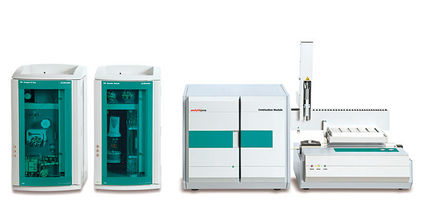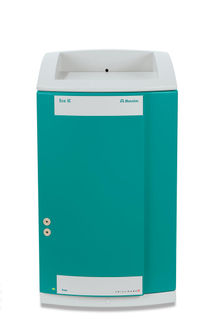To use all functions of this page, please activate cookies in your browser.
my.chemeurope.com
With an accout for my.chemeurope.com you can always see everything at a glance – and you can configure your own website and individual newsletter.
- My watch list
- My saved searches
- My saved topics
- My newsletter
TetracosactideTetracosactide is a synthetic analogue of the naturally-occurring hormone, adrenocorticotrophic hormone (ACTH). In the normal situation, ACTH is released from the pituitary gland in the brain. It acts on the adrenal glands to stimulate the production of steroid hormones (glucocorticoids and mineralocorticoids). If the adrenal glands are healthy, a single injection of tetracosactide results in a rise in blood cortisol (hydrocortisone) concentrations in 30 minutes. If the adrenal glands appear not to be working then tetracosactide injection can be given to check whether the problem is due to diseased or damaged adrenals or due to lack of pituitary ACTH. Product highlightThis medication is used for diagnostic purposes only (eg in short synacthen test. It is suitable for treatment of adrenal insufficiency of central origin. It is marketed under the brand name Synacthen As well as its legitimate medical applications, it has been widely reported that Synacthen has also been used as an illegal performance enhancing drug by professional cyclists.
|
||||||||
| This article is licensed under the GNU Free Documentation License. It uses material from the Wikipedia article "Tetracosactide". A list of authors is available in Wikipedia. | ||||||||







